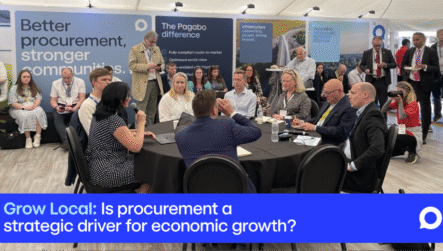
Sustainable procurement offers an alternative way to look at otherwise traditional procurement by incorporating corporate social responsibility (CSR) principles into the procurement process.
As increasing numbers of businesses become more socially aware, sustainable procurement is now vital for businesses across all sectors. Progress has been made over the past decade, and organisations are now looking at many different ways in which their procurement processes can become more sustainable.
This is especially the case in the construction sector, which accounted for nearly 40 per cent of global energy and process-related CO2 emissions in 2018.
As well as helping businesses meet targets of decreasing their carbon footprint, it also makes them more future proof by mitigating against future issues that may affect supply chains.
What is sustainable procurement?
Sustainable procurement is the way in which businesses identify and reduce the environmental impacts of their supply chains.
Ways of doing this include:
- Working with suppliers that have strong environmental credentials, including low impact and fair-trade approaches.
- Identifying responsibly sourced materials that can be used, such as hemp, timber and reclaimed steel).
- Reducing waste by avoiding single-use plastics and other non-recyclable materials.
- Maintaining best practice around healthy work environment and mental health policies to ensure employees feel respected and valued.
What are the benefits of sustainable procurement?
- It can reduce waste within a project
Reducing waste is one of the simplest ways in which companies and individuals can have a positive effect on the environment and lower our carbon footprint. - It can improve consumer perception
Both consumers and clients are increasingly looking to align themselves with people within their ecosystem that have strong CSR policies, so having sustainable procurement policies is essential for external perception. - It can reduce costs
Sustainable suppliers can positively impact a customer’s bottom line by reducing energy costs, reducing over-specification and improved compliance, leading to increased profit margins.
Will sustainable procurement work for my business?
By committing to sustainable procurement, companies can ensure that their CSR values are implemented throughout the life cycle of the project.
Such an approach future-proofs projects against changes in policy or government approach, but also introduces best practice in ensuring long-term viability.
Sustainable procurement can secure supply chains against material shortages and equip them to enter emerging markets, all while keeping their costs and energy output to a minimum.
By embracing sustainable procurement, companies and projects can give themselves a real point of difference that is visible, actionable, and measurable.
If you’d like to know more about Pagabo’s approach to sustainable procurement, why not take a look at our policies?
Do you have a project that our frameworks might be able to support on? Get in touch to discuss your requirements with one of our procurement professionals.
Discover our frameworks
































